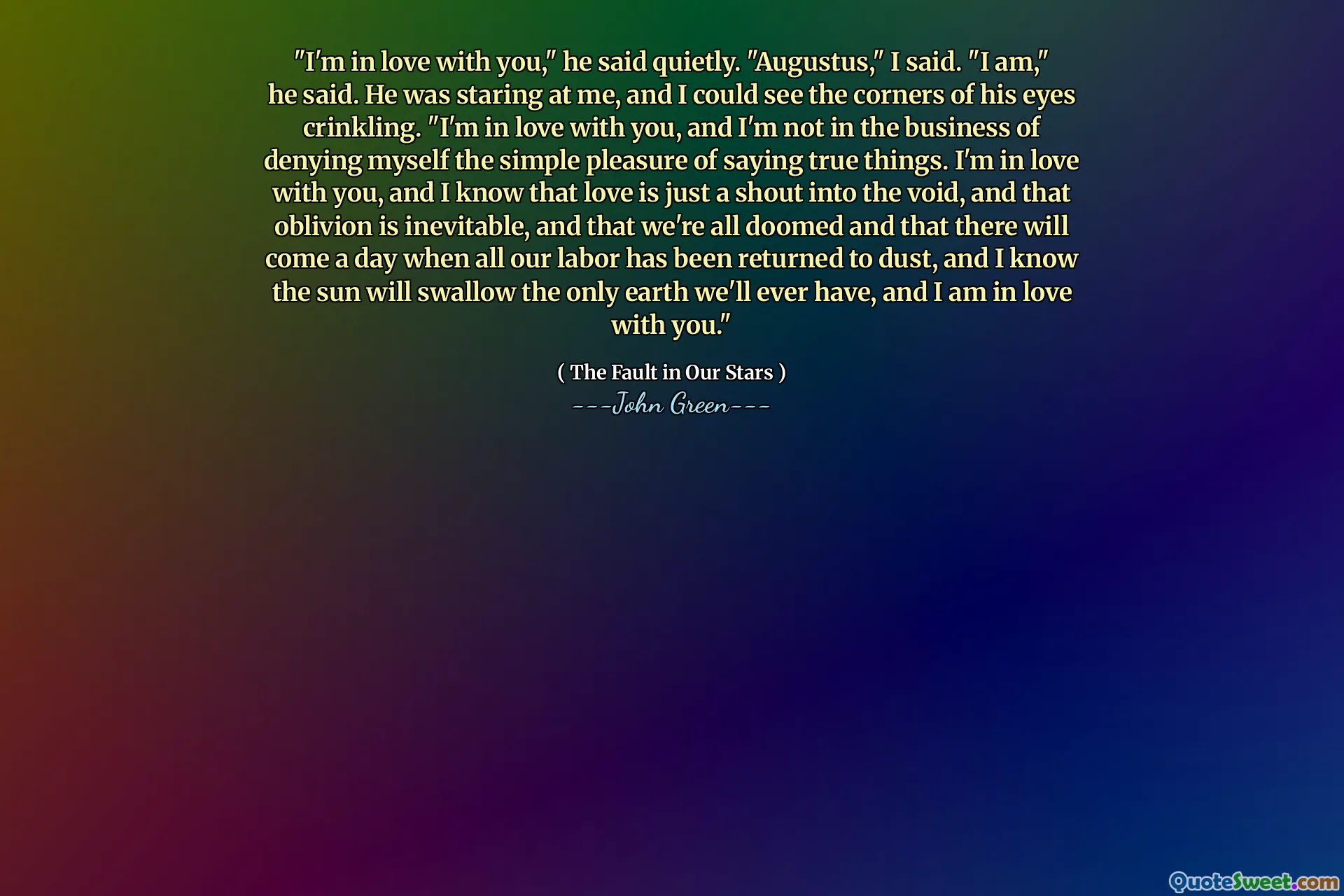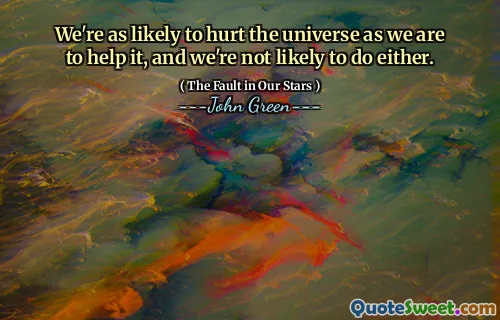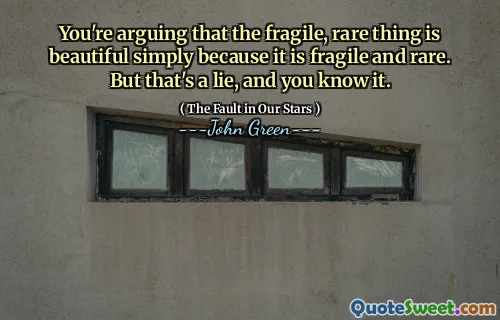
"I'm in love with you," he said quietly. "Augustus," I said. "I am," he said. He was staring at me, and I could see the corners of his eyes crinkling. "I'm in love with you, and I'm not in the business of denying myself the simple pleasure of saying true things. I'm in love with you, and I know that love is just a shout into the void, and that oblivion is inevitable, and that we're all doomed and that there will come a day when all our labor has been returned to dust, and I know the sun will swallow the only earth we'll ever have, and I am in love with you."
This quote from John Green's "The Fault in Our Stars" is a poignant testament to the raw honesty and vulnerability embedded in love. Augustus's declaration stands out because it embraces the ephemeral nature of existence and love’s inherent fragility, acknowledging that everything around us, including the people we cherish, is transient. Despite this inevitability—oblivion, the sun consuming the earth, the futility of human efforts—he still chooses to express his love, not as a denial of reality but as a bold acknowledgment of truth.
What makes this quote so powerful is its blend of realism and hope. It captures that tension between despair and affirmation that many people feel when facing life's impermanence. Love here is framed not as a naive or eternal fantasy, but as a deeply courageous act: a "shout into the void." This metaphor eloquently conveys the idea that love is vulnerable and uncertain, yet still urgent and meaningful. It’s a reminder that even if everything will someday collapse into dust, the emotions and connections we cultivate along the way hold profound significance for the time we share.
Reflecting on this quote invites us to appreciate the beauty in moments of honest expression and to understand that love’s power often lies in its awareness of fragility. Augustus’s words encourage us to embrace truth, even when it’s uncomfortable, and to cherish love for the sublime experience it is regardless of its duration. It’s a sobering yet inspiring meditation on humanity’s confrontation with mortality, making the quote timeless, resonant, and deeply moving.







